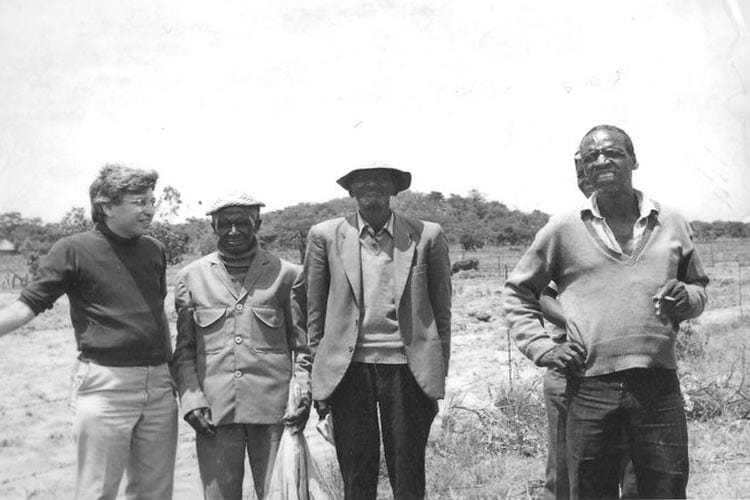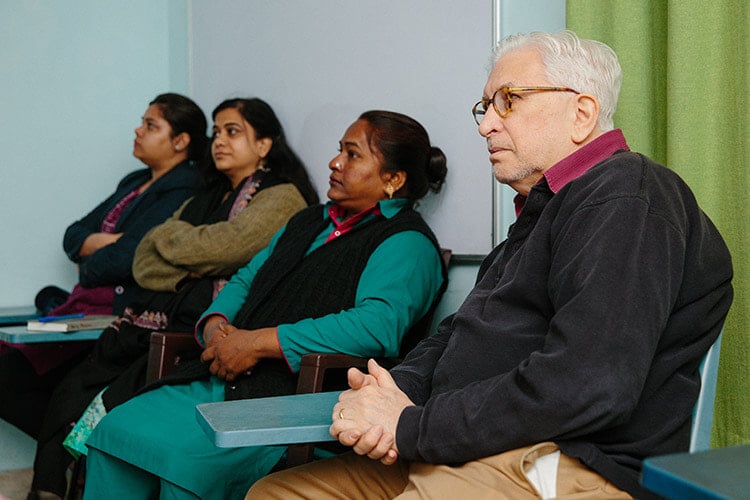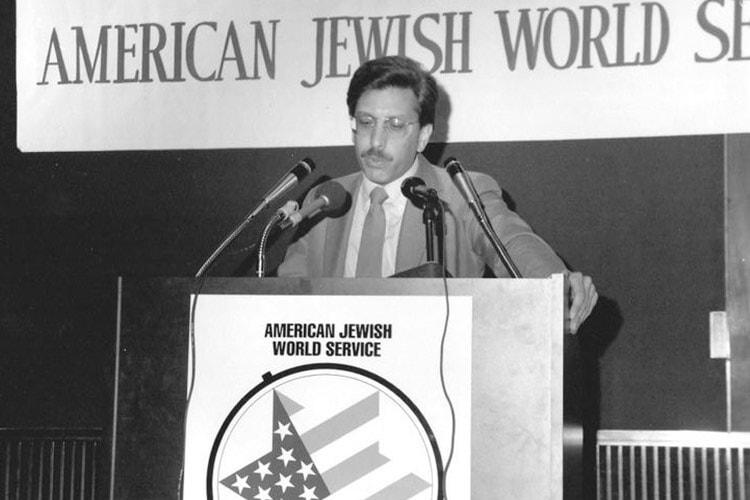Over forty years ago, I began discussions with leaders of major Jewish organizations, with synagogue Rabbis and their congregations, to organize the first Jewish organization dedicated to respond to world poverty, hunger and dehumanization. Eventually, and together with philanthropist Larry Phillips, I took a leap and founded American Jewish World Service (AJWS), stepping away from my role in global aid and development with Oxfam America. It was a natural step for me for in my years of global famine and disaster relief experience, traveling to some of the most remote and discriminated against communities on Earth, I always encountered Jews. We were doctors from Médecins Sans Frontières, Oxfam field workers, journalists, human rights monitors, anti-apartheid activists, witnesses for peace. We were present but we were silent about what united and motivated us: our Jewish values and history.
So, I decided to establish an American Jewish organization to take up the mantle of tikkun olam and to act in kindness, solidarity and the universal values that unite us all. I founded AJWS to unite people who believe deeply in human dignity through the lens of our Jewish values and culture, who want to respond in a meaningful way to oppression elsewhere. Now, reflecting on our founding, I am proud to affirm that, since 1985, every project we funded, every relationship we built throughout the world has been an affirmation of human rights.
AJWS was and continues to be shaped by the human rights defenders it supports. I’d like to share a few stories of those I’ve met who have, in turn, shaped me.
Serge Chernigun, director of the National Federation of Sugar Cane Workers in the Philippines, was one of the saintliest men I’ve ever met. His life was constantly in danger due to his work on behalf of workers and his community. Serge introduced me to Bishop Antonio Fortich of Negros Occidental in the Philippines, who risked his life to fight for the poor. I recall visiting Bishop Fortich just one day after his house was bombed and burned to the ground by angry landowners. I still have the charred nails I picked up from the remains of his home and made into a crucifix. This artifact, unusual for a Jewish person like me to hold so dear, reminds me of the extraordinary selflessness of those who fight for human rights.

These brave activists and their work are reminders of why I founded AJWS: to address the root causes of inequality, motivated by justice and not just charity. I was reminded of this again when I traveled to India in early 2020 to witness AJWS’s work firsthand, 30 years since my tenure as President and CEO. I stepped off the plane in Delhi and into a cab that was extraordinary simply because of who was driving it: a young woman. Not only is driving cabs a typically male profession in India, but the driver was part of a program supported by AJWS to help young low caste women and girls chart their own futures and avoid child marriage. By learning to drive cabs, they are earning an income and becoming independent, while also providing safe transport for other women in the city, enabling them to have their independence, too. They are showing the men in their community what low caste women are capable of.

The Jews who have supported AJWS’s founding have also shaped me. Elie Wiesel, a founding member of the AJWS board, always spoke from the heart. For Elie, his experience as a Holocaust survivor made AJWS’s work essential; he once told me that pain and alienation are the bonds between peoples who know suffering. Bill Graham, a famous rock concert promoter, went out of his way to make sure that I spoke at Live Aid, an immense famine fundraising effort. AJWS was just months old at the time and was the only aid organization invited on stage, to announce our airlift of medical supplies to Mozambique. Bill, whose mother died in Auschwitz, was moved by AJWS’s mission, rooted in Jewish values, to work on behalf of the world’s oppressed.
I mentioned the revelation that, in the most remote corners of the world, there have been Jews doing human rights work. So, it comes as no surprise that the AJWS community in the U.S.—donors, activists, rabbis, those concerned for global human rights—is so robust and dedicated.
Because of this extraordinary community, I am optimistic about the future. The rise in authoritarianism, the climate crisis, anti-LGBGTQ+ movements—among other oppressions—makes this a tenuous moment for human rights. There will always be efforts to repress people, but the programs that AJWS supports are not going away. When I look at the bigger picture, there has been immense progress toward human rights and justice. And with such a powerful community standing together for four decades, I know that we can do even more together. You are an essential part of this global pursuit of human rights. Thank you for all that you do to repair our world.

